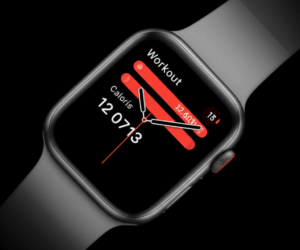In a world brimming with quick-fix diets and fleeting fitness trends, the enduring challenge of maintaining a healthy weight often gets overshadowed. Yet, achieving and sustaining a healthy weight is not merely about aesthetics; it’s a cornerstone of overall well-being, profoundly impacting physical health, mental resilience, and quality of life. This guide delves into the essential strategies and understanding required to embark on a sustainable journey towards optimal weight management.

Why Maintaining a Healthy Weight Matters for Your Health
The benefits of maintaining a healthy weight extend far beyond outward appearance, contributing significantly to a longer, healthier life. When your weight is within a healthy range, your body operates more efficiently, circulates blood more effectively, and manages fluid levels with greater ease.
Key health advantages include:
- Reduced Risk of Chronic Diseases: Maintaining a healthy weight significantly lowers your risk of developing serious conditions such as heart disease, stroke, type 2 diabetes, high blood pressure, high cholesterol, certain cancers, gallstones, osteoarthritis, breathing problems, and sleep apnea. Even a modest weight loss of 5-10% of current body weight can notably reduce these risks.
- Increased Energy Levels: Carrying excess weight can make you feel sluggish, whereas a healthy weight often correlates with improved energy and vitality.
- Better Sleep Quality: Optimal weight management can lead to improved sleep, which is crucial for overall health and plays a role in metabolism.
- Stronger Bones and Joints: Less stress is placed on your joints, particularly in the lower body, reducing the risk of conditions like osteoarthritis and improving overall mobility.
- Enhanced Mental Health: A healthy weight can positively impact mental well-being, helping to improve mood and reduce symptoms of anxiety and depression.
- Longer Life Expectancy: By mitigating the risks of various illnesses, maintaining a healthy weight contributes to a longer, more active life.

Key Pillars of Healthy Weight Maintenance
Achieving and maintaining a healthy weight requires a holistic approach, focusing on sustainable changes across diet, physical activity, and overall lifestyle. There’s no “secret” to success; rather, it involves balancing healthy eating and consistent physical activity over the long term.
Balancing Calories and Nutrition
At its core, weight management involves balancing the calories you consume with the calories your body uses for energy. To maintain your weight, your calorie intake should match your energy expenditure. To lose weight, you typically need to consume fewer calories than you burn.
Prioritizing a Balanced Diet: A healthy eating plan emphasizes nutrient-rich foods. Focus on:
- Fruits and Vegetables: Aim for at least five portions of a variety of fruits and vegetables daily, which are rich in vitamins, minerals, and fiber.
- Whole Grains: Base meals on higher-fiber starchy foods like whole-grain bread, brown rice, and whole-wheat pasta.
- Lean Proteins: Include diverse protein sources such as beans, pulses, fish, eggs, lean meats, and poultry, essential for growth, repair, and satiety.
- Healthy Fats and Dairy: Choose unsaturated oils and spreads in small amounts, and opt for low-fat or fat-free dairy products or fortified alternatives for calcium and protein.
- Limiting Unhealthy Components: Reduce intake of foods high in added sugars, unhealthy saturated and trans fats, processed foods, and excessive sodium.
- Mindful Eating: Pay attention to your body’s hunger and fullness cues, eat slowly, and avoid distractions like screens during meals. This helps prevent overeating and promotes satisfaction.
- Hydration: Drinking plenty of water is crucial. It helps bodily functions, can reduce mistaken hunger for thirst, and promotes feelings of fullness.
- Portion Control and Planning: Be mindful of portion sizes. Planning meals and snacks in advance can help maintain calorie and nutrient balance, making healthy choices easier.
Recommended Foods for Weight Maintenance: Incorporating specific foods known for their satiety and nutritional value can be beneficial. These include beans (high in fiber), salmon (rich in protein and healthy fats), eggs (protein-rich breakfast option), nuts (protein, fiber, healthy fats—in moderation), popcorn (fiber-rich snack), Greek yogurt (high protein, less sugar), and chili peppers (capsaicin may boost metabolism).
Embracing Regular Physical Activity
Physical activity is indispensable for both losing weight and preventing its regain, while also offering a myriad of other health benefits.
- General Recommendations: Most healthy adults should aim for at least 150 minutes of moderate-intensity aerobic activity per week, or 75 minutes of vigorous aerobic activity, along with muscle-strengthening activities at least twice a week. Consistent exercise, even beyond these basic recommendations, can further contribute to long-term weight management.
- Benefits Beyond Calorie Burning: Regular exercise improves mood, lowers blood pressure, and promotes better sleep.
- Effective Exercise Types:
- Aerobic Activities: Brisk walking, jogging or running, cycling, and swimming are excellent for burning calories and improving cardiovascular health.
- Strength Training: Using weights, resistance bands, or bodyweight exercises helps build and maintain muscle mass, which boosts metabolism.
- Flexibility and Balance: Yoga and Pilates can improve overall fitness, muscle strength, and flexibility, while also promoting mindful eating habits.
- Incorporating Movement: Look for ways to integrate physical activity into your daily life, such as taking the stairs, parking further away, or standing while on the phone. Even short bursts of activity are beneficial.
- Making it a Habit: To sustain physical activity, choose enjoyable activities, set realistic goals, gradually increase duration and intensity, and consider tracking your progress to stay motivated.
Crucial Lifestyle Factors
Beyond diet and exercise, several lifestyle elements play a critical role in maintaining a healthy weight.
- Adequate Sleep: Poor sleep habits can disrupt hormones that regulate appetite (ghrelin and leptin), making weight management more difficult. Aim for consistent, quality sleep.
- Stress Management: Chronic stress can lead to increased cortisol levels, which can promote fat storage, particularly around the abdomen. Finding healthy ways to manage stress, such as relaxation techniques, hobbies, or social connection, is vital.
- Social Support: Having a strong support network of friends, family, or health professionals can provide encouragement and accountability, making it easier to stick to healthy habits.
- Mindset and Consistency: Long-term weight maintenance is a journey, not a destination. It requires a resilient mindset, setting realistic and achievable goals, and understanding that occasional lapses are normal. The key is to learn from them and get back on track quickly, rather than giving up. Avoid “fad diets” that promise quick results but rarely lead to sustainable changes.

Overcoming Challenges in Weight Management
The path to maintaining a healthy weight is often fraught with challenges. Understanding these common obstacles can help you navigate them more effectively.
- Metabolism Slowdown and Hunger Hormones: After weight loss, the body’s metabolism can slow down, and hunger-regulating hormones may increase, making it harder to keep the weight off.
- Mental Burnout and Lack of Motivation: The sustained effort required for weight maintenance can lead to mental fatigue or a decrease in motivation over time.
- Environmental and Social Pressures: Our environment often presents challenges, such as the pervasive availability of unhealthy foods, social gatherings centered around eating, and time constraints that hinder exercise or proper meal preparation.
- Age and Genetics: As people age, their metabolism naturally changes, and body composition shifts, making weight management more challenging. Genetic factors also play a role in an individual’s predisposition to weight gain.
- Addressing Setbacks: Everyone experiences slips or “lapses” into old habits. It’s crucial to differentiate a lapse (a small mistake) from a “relapse” (returning to old habits for an extended period) and to have strategies to quickly get back on track without succumbing to discouragement.
- Seeking Professional Guidance: For individuals facing significant challenges, consulting a healthcare professional, such as a doctor or registered dietitian, can provide personalized strategies and support.

Strategies for Long-Term Success
Sustainable weight maintenance is about embedding healthy habits into your daily life.
- Monitor Progress (Beyond the Scale): While the scale can be a tool, don’t become fixated on it. Weight fluctuates daily, and muscle weighs more than fat. Focus on overall progress, how your clothes fit, energy levels, and general well-being.
- Continuous Goal Setting: Set both short-term and long-term goals that are realistic and achievable. These could be related to exercise (e.g., trying a new activity), nutrition (e.g., cutting down on sugar), or even non-diet related aspirations that boost happiness.
- Develop a Plan: Planning is key. Schedule your workouts, plan your meals and snacks, and prepare food in advance to ensure consistent healthy choices.
- Learn from Others: Connect with others who have successfully maintained weight loss. Their experiences and shared strategies can be invaluable.
- Accepting Imperfection: Recognize that the journey will have its ups and downs. Setbacks are a normal part of life, and what truly matters is how you recover and recommit to your goals.
Maintaining a healthy weight is a continuous, dynamic process that requires a personalized and adaptable approach. By focusing on balanced nutrition, regular physical activity, adequate sleep, stress management, and a positive mindset, you can build sustainable habits that support not just a healthy weight, but a healthier, more fulfilling life.







